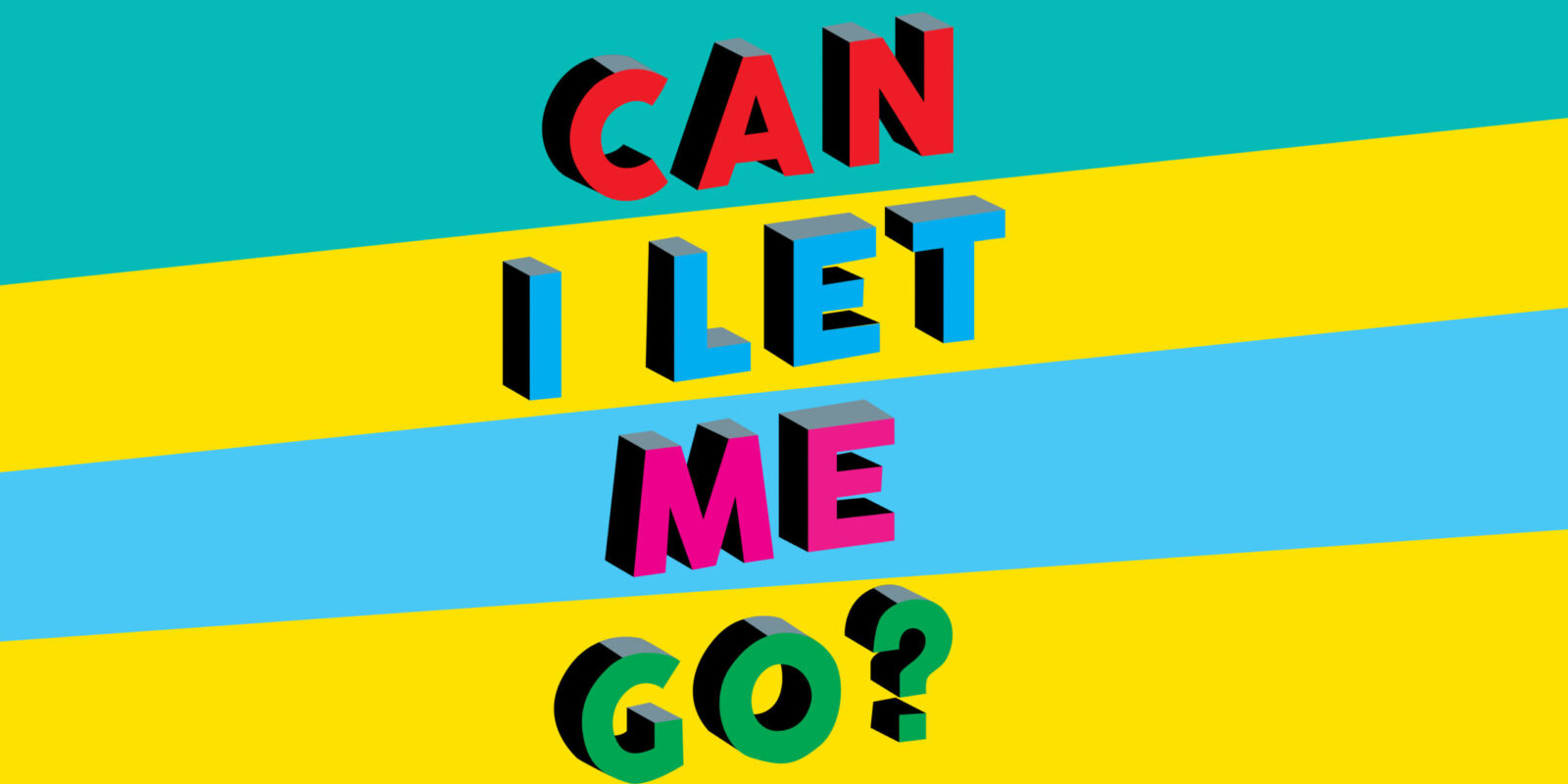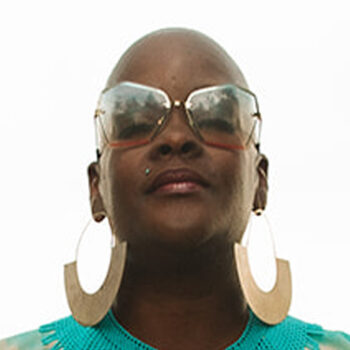


Sonya Renee Taylor and adrienne maree brown have been collaborators since 2017 when adrienne interviewed Sonya for her book Pleasure Activism. In 2020 they did an event that became the spark for not only their friendship but also the cocreation of The Institute of Radical Permission and Journal of Radical Permission. Here the two authors and activists talk about how Sonya came to a radically new orientation towards herself and her perspective on life.
Sonya Renee Taylor: I was socialized and conditioned to caretake, but in a particular kind of way, like to crisis caretake. I was conditioned around parentification as a child of an addict. A lot of survival responsibilities fell on me.
And then as I got older, I was socialized to operate with a certain level of extraction, like you need to figure out how to have your needs met, and here are some strategies. Here’s the strategy of desirability. Here’s the strategy of smartness. Here’s the strategy of hustler. These are all roles that I played as a way to extract what I needed from wherever it was locked.
In 2020, the great collapse was happening both societally and in my personal life. My partner and I had broken up. My dog had terminal cancer and was about to die. I was in a country that had just gone on a complete lockdown, and I was living alone in this house that was supposed to be a place where I was going to be doing healing retreats. There was this wave of despair that came rushing toward me. I had this sense that if I did not employ whatever exists beyond me I was going to be consumed by this despair.
There was a drum in my house from a friend of mine. I got the drum, and I started chanting and playing the drum, like rebuking that wave of despair. It was the first time where I was like, Oh, I’m an invocation of all of the entities that assist me. I am at the point where I need all of the energies, all of the tools, all of the resources to make it through this experience. That was the first time it felt like there is something opening in me that knows that I cannot do this alone.
There were two moments of surrender. The first was not long after the invocation of all the energies and spirits to assist me. I was in the shower, and again, I was just like, this is the most painful thing. When is this over? Whatever “this” is I’m in. When is this over? I had been listening to gospel songs, and it was as if on cue this song played that goes, “It ain’t over until God says it’s over.” I literally shower slid down the wall weeping, and I was just like, fine. I surrender. Clearly, I’m out of my field of control, and there’s nothing you can do except to surrender to it.
I feel like I surrendered, but it was a resistant surrender, as for a long time I experienced it like a punishment. I felt life is stripping me of everything, cause life hates me, cause I’ve been bad, cause I didn’t get it right. I could see where all my old stories still wanted to be in the experience.
That came three years later. I was actually sitting on your couch in your house. I’d had an encounter with an energy of an old relationship, and the encounter brought up a bunch of grief, brought up a lot of pain and activation and frustration. And I was like, I don’t want to feel like this. Whatever it is that I am holding on to in such a way that it is causing me this kind of suffering—I want to be released from it.
Can I let me go?
I felt this knowing: your path is a spiritual path, Sonya. I had all kinds of stories about what that meant. I had the story that it meant I was going to become a monk. I was going to have to give up so many things. And I was like, I don’t want to. I could feel all the resistance around it. I heard very clearly what there is to do. I’m being asked to say yes to this path. I sat on your couch and I said, fine. Fine! I surrender to the path that spirit has for me. I say yes to this path.
It was as if for three years life had been dragging me like a screaming toddler in the mall. And instantly I felt like I stood up and I had my own sense of my autonomy. Some part of my own internal dignity came back when I chose to stand up and walk with what life was, what life had already clearly said. The suffering instantly left.
A few days later, I was also with you, and some person pulled out in front of us and nearly T-boned us. I put my arm out, and I just said to that person, “May you get where you’re going safely.” Then I got to the Airbnb where I was staying, and there was all this stuff that I normally would have been really activated by. And I just was like, Oh, that’s what it is! There were just all these tiny moments where the way I’m responding is so different than the me that I am used to.
I sent an email to the Airbnb host to let them know some things were missing. There is a version of Sonya that would have sent it with irritation that I had to send it at all, and with a sort of manipulation, like, let me pretend to be nice, so that I can get what I need. But I felt this purity of response.
I had the experience of knowing that every experience I ever had in life was so that I could have that moment. Every heartache, every ended relationship, every death, every single moment was so that I could write that email and be like, I have nothing to strategize or manipulate for, because everything that is life is present for me.
SOME PART OF MY OWN INTERNAL DIGNITY CAME BACK WHEN I CHOSE TO STAND UP AND WALK WITH WHAT LIFE WAS.
All of old Sonya. All of those orientations and adaptations that you asked me about at the beginning of this conversation: the identity of Sonya the hustler, the identity of Sonya the strategizer, the identity of Sonya the caretaker, the identity of Sonya the smart girl. Every version that I had created in response to trying to extract my needs from life had to fall away. Some of them were versions that I really loved. There’s Sonya the personality that I had to give up. In some ways that is to give up Sonya and to simply be.
I don’t have the same relationship to time, to future that I used to have—the idea that there is some place I’m trying to get. So becoming is however it is that life will unfold in whatever other moments there will be. But I don’t have any investment. Or I just don’t have the illusion that I have some control over that anymore.
I currently am in a daily meditation practice, which is really essential for me to clear mind chatter. It wants to come in and reinstate certain illusions. It wants to be like, Oh, no, remember, we actually do have control here. So meditation helps me come back to presence along the journey.
I had to learn to hear differently. In the beginning of this process, I was given things that at the time were scary, like auditory messages. In our societal context, people tell you you’re crazy and you go to a hospital. Thank goodness that I had a therapist who is also a spiritual practitioner, who was able to tell me you’re not crazy, Sonya. You’re receiving guidance. What does it look like to surrender to the guidance you’re receiving?
So I recommend a daily practice. Ask yourself, what is your daily practice that helps you hear?

Sonya Renee Taylor is a New York Times best-selling author; world-renowned activist and thought leader on racial justice, body liberation, and transformational change; international award-winning artist; and founder of The Body Is Not an Apology (TBINAA), a global digital media and education company that explored the intersections of identity, healing, and social justice through the framework of radical self-love. Sonya is the author of seven books, including The Body Is Not an Apology: The Power of Radical Self Love.

Adrienne maree brown grows healing ideas in public through her multi-genre writing, music, and podcasts. Informed by twenty-five years of movement facilitation, somatics, Octavia E. Butler scholarship, and her work as a doula, adrienne has nurtured Emergent Strategy, Pleasure Activism, Radical Imagination, and Transformative Justice as ideas and practices for transformation. She is the author/editor of seven published texts and the founder of the Emergent Strategy Ideation Institute, where she is now the writer-in-residence.
Get the latest news and stories from the Rubin, plus occasional information on how to support our work.